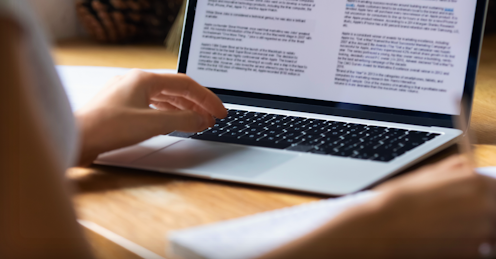Technology is changing the lives of female lawyers, in ways that are bad as well as good
- Written by Amy Tapsell, Research Officer, University of Sydney
 Shutterstock
ShutterstockI can go to a hearing by Zoom or by phone, I absolutely love it – otherwise, I’d be travelling down to Sydney – Valerie, focus group
Overwhelmingly, Australian lawyers feel positive about the technological changes sweeping through their industry, and women more than men.
Whether it’s working from home or using...
Read more: Technology is changing the lives of female lawyers, in ways that are bad as well as good














